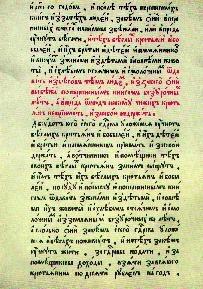Exclusive right to copyright protection
The exclusive right in jurisprudence is denoted bythe monopoly of a particular person to perform certain actions, most often associated with an ideal object, the value of this monopoly is precisely in exclusivity. The most commonly used equivalent of this concept is intellectual property.
Each object of this type of property hashis specific owner, he owns the exclusive right to work. This right gives the holder the authority to control the use of the product of intellectual activity.
In modern conditions with the development ofwe are surrounded by objects of someone else's intellectual property - photos, advertising texts, video clips, trademarks and logos, etc. There is a great temptation to take advantage of the results of someone else's work - for example, to place on your site the photo you like or to include in your own article a couple of paragraphs from a stranger. It turns out that the exclusive right of almost every author is often violated. Let's see what legal methods can be used to issue the owner's permission to use the object of his intellectual activity (if, of course, such permission exists).
The list of such objects (very extensive)is given in article 1225 of the Civil Code. In this case, each object has a copyright holder. It is the rightholder (that is, the owner) who has the exclusive right (on another - the property right) to an object that gives an opportunity to receive income from its use.
The temptation (often considerable) to use the product of someone else's work, protected by copyright or property law, is fraught with liability - administrative, civil or even criminal.
To conclude a contract thatlegal use, it is necessary to establish who owns the exclusive right to the object. This may be the author or group of co-authors or another person who has legitimately obtained the rights to the product. For example, the employer of the author who paid for his work. This approach is often practiced among web writers who write to order.
A contract concluded with the right holder maybe complete (the so-called agreement on the alienation of the exclusive right) or licensed. In the first case, there is a complete concession (alienation) of the right to a third party. The license agreement implies only a partial (temporary) transfer of rights to the work.
Let's consider both options in more detail. Under the contract of alienation (assignment), the rightholder concedes the exclusive right to the product in full without restrictions. Such a contract must be concluded only in writing, and in the event of the transfer of rights to objects subject to state registration, the contract must also be registered. Such objects are industrial designs and models, trademarks, inventions, achievements of selection. At the request of the authors, databases and computer programs are registered, while in the form of a treaty, the rightholder concedes his rights completely and permanently.
The license agreement implies the use ofobject partially or completely, with the transfer of ownership does not occur. Use may not be subject to all rights to the work, but only a part of them, specified in the contract (processing, reproduction, distribution, rental, translation, etc.). That is, the licensee (who received the license) as it were "rents" the object, and does not buy forever. The license, in turn, can be exclusive (other persons can not be issued), simple or nonexclusive - when the right to purchase it can be used by other persons, and mixed.
An important condition for both forms of the contract ispayment of remuneration. The contract can be paid (with payment of a fee) or not by agreement of the parties. If there is no corresponding clause in the text of the contract, the contract by default is considered paid.
Remuneration can be paid in the form of a one-time payment, interest on the income received, or as a combination of both forms.
In a contract of any form it is forbidden to include conditions,Limiting the author's right to create other works. Such conditions are recognized by law as null and void as limiting the legal capacity of a citizen.





